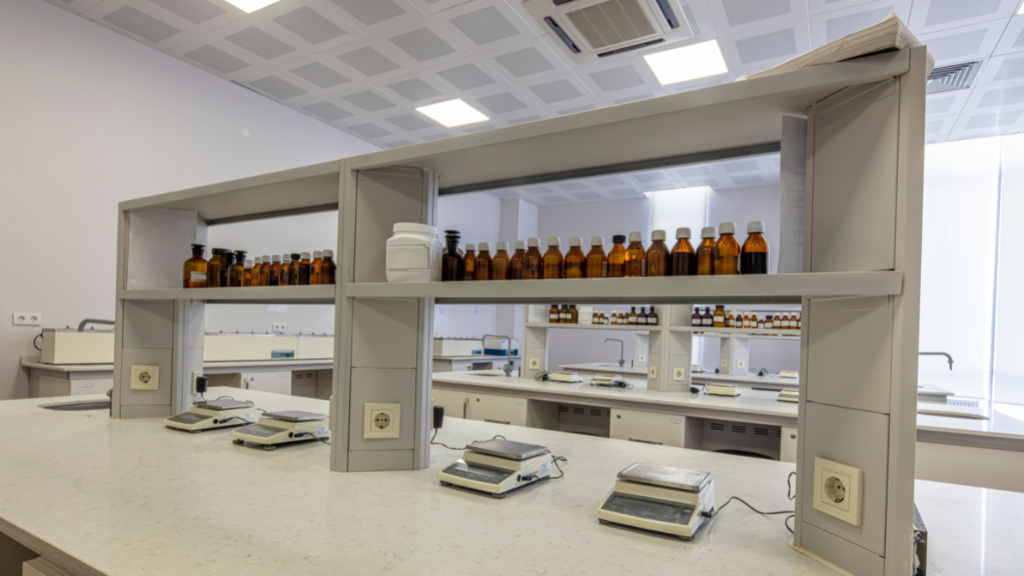Turkish Universities Adopt Chemical Security Best Practices

Located at the crossroads of Western and Eastern civilizations, Turkey has for a long time served as an economic hub of Eurasia. With its booming exports, over the past half a century Turkey has invested significant resources to sustain economic growth by contributing to development and expansion of the academic sector.
Today, more than 7.5 million students attend 207 universities across Turkey. Due to the size of its student body, Turkey is the second largest country in the European Higher Education Area (EHEA), a cooperative higher education system uniting 49 countries of Eurasia that seeks to strengthen the quality of education in member countries. As in any developed country, in Turkey education serves as the foundation for economic growth and expansion.
With its growing iron and steel, chemicals, cement, food processing and pharmaceutical industries, Turkey is also heavily investing into research and development to maintain its competitiveness in the global markets and to sustain its economic growth. Chemistry, engineering, and medicine are key areas of research and development at Turkish academic and research institutions.
Heavy investment in R&D — particularly in the field of chemistry and medicine — also mean a significant increase in the volume of chemicals stored at laboratories and the involvement of more personnel, including students, who work with them. Many academic, medical and research institutions house hazardous and dual-use chemicals at their labs and facilities which, if misused or stolen, can be utilized as chemical weapons precursors. Non-state actors operating in the Middle East and Northern Africa have consistently attempted to obtain expertise and chemical precursors in order to develop chemical weapons. Therefore, securing of chemicals at potentially vulnerable institutions is crucial to mitigating the risk associated with the otherwise positive development of increased investment in chemical research and development.
In partnership with U.S. State Department’s Chemical Security Program (CSP), CRDF Global engages Turkish partners in academia, industry, and government agencies to help institute and strengthen chemical security culture. Although the COVID-19 pandemic stalled many activities and travel across the world, the global health crisis was no impediment to the continuity of CRDF Global’s programming in the region. Partnering with Turkish Society of Toxicology (TURKTOX) and Lawrence Livermore National Laboratories (LLNL), CRDF Global launched a remote Chemical Security Fundamentals for Turkish Academia training in December 2020 to train professors, associate professors, assistant professors, researchers, research assistants at medical, pharmaceutical and biology departments of universities and research hospitals who have access to hazardous chemicals. A training which consisted of an online course with pre-recorded video modules and topic-specific tests and two live webinar sessions brought together key stakeholders from 24 universities in 17 cities to build their capacity and skills to securely manage weaponizable chemicals and to establish a sustainable chemical security culture.
Participants had an opportunity to get an overview of major groups of hazardous chemicals, the threats they pose, and learn about international best practices and tools, such as the Globally Harmonized System (GHS) for the Classification and Labeling of Chemicals, that help properly store and secure chemicals and improve an organization’s overall security posture. LLNL experts discussed the importance of maintaining an effective Chemical Management System, referred to as a Chemical Inventory Management System (CIMS), when seeking to mitigate the use of chemicals for malicious purposes. The training covered best practices for the purchase and receipt of chemicals, chemical storage, and chemical waste disposal; explained how effectively standard operating procedures contributed to the overall security of chemicals and guided the participants through the process of development of these procedures using international best practices and resources. The presenters elaborated on basic approaches to risk-based security that can be applied regardless of the simplicity or complexity of the environment in which a given institution operates. The training also helped Turkish partners to learn and soon adopt risk-based security practices – Detection, Delay, Response, Cyber Security, and Security Management.
CRDF Global continues to engage its Turkish partners by extending grants which will assist to strengthen chemical security practices in the Turkish academia. With global vaccinations in place and COVID-19 travel restrictions soon to be lifted, CRDF Global will implement more in-person trainings in Turkey to establish a sustainable chemical security culture across Turkey’s academia, industry and government institutions.



